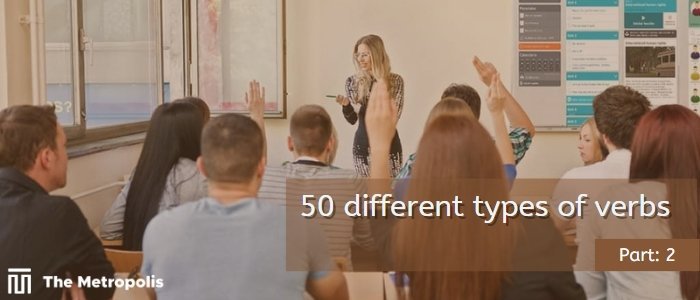Zulfiqar Parvez-
It was back in 2008, and somehow a grammar mania came over me that led me to find many new things I did not know even existed in language. There were even eight nights of insomnia on the trot that resulted in the discovery of over 50 different types of verbs alone. I feel my students should know each of them by turns. I found them in a number of different books on grammar and went all the way to take the trouble to arrange them in alphabetical order so my students could find them in the blink of an eye. Here comes my second write-up on verbs that contains all the verbs beginning with ‘B’ and ‘C’. Keep in touch. The rest will follow.
Bare infinitive/Flat verb:
The base form of a verb without the particle “to” before it. It is most often used with modals.
The patient can walk now.
He may help you.
You must leave this place.
Be verb:
A verb that expresses a state of being rather than a state of action:
I am a teacher.
He is my student.
Catenative Verb:
A verb that is commonly followed by a to-infinitive as its complement:
e.g. John wanted to go home.
We need to buy a car.
Causative verb:
A transitive verb that shows that somebody or something makes something happen to a person or thing.
e.g. Zinnia broke the cup.
Tom made a mistake.
Some common causative verbs are: have, get, let, help, and make.
Mary had John wash the car.
Mary got John to wash the car,
Mary helped John wash the car.
Mary got the car washed.
The robber made the salesman give him the money.
John let his daughter play with her friends.
It is to note and remember that with a change in the finite verb, the entire sentence can come to have a different connotation. See if you can find out how the three sentences are subtly different.
John made Bob drive the car.
John let Bob drive the car.
John helped Bob drive the car.
Complex transitive verb:
A verb that takes a direct object and a complement to that object:
I called him a fool.
The doctor declared the patient dead.
The complement to the object, in this case, may be either a noun or an adjective.
Complex di-transitive verb:
A transitive verb which takes two objects after it and then a complement to the second object:
She gave me the flowers fresh.
They served us the food hot.
In this case, the complement to the object should always be an adjective.
Complex verb:
A verb phrase which consists of one or more auxiliary verbs and a lexical verb:
Fishermen are catching fish.
They have worked very hard.
It has been raining since morning.
The work should have been done yesterday.
Compound verb:
A verb phrase that contains a verb followed by an adverbial particle and/or a preposition:
Please turn up the T.V. (verb + adverbial particle)
Sussie takes after her mother. (verb + preposition)
He looks down upon the poor. (verb+ adverbial particle + preposition)
The individual words in a compound verb lose their own meanings, and the entire group produces an altogether different meaning.
Complete verb:
An intransitive verb. If one thinks of a transitive verb that requires an object to be complete, then an intransitive verb, because it requires no object to be complete, can be called a complete verb:
Copula/copulative verb/copular:
The verb “be” in any of its inflected forms. This is one type of linking verb.
You should have been more careful.
It was winter.
Fred is taller than Mike.
I am 31.
Our friends were very friendly.
I will be here all day.
All the secondary forms of “Be” and the primary form itself.



